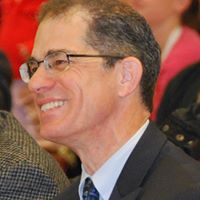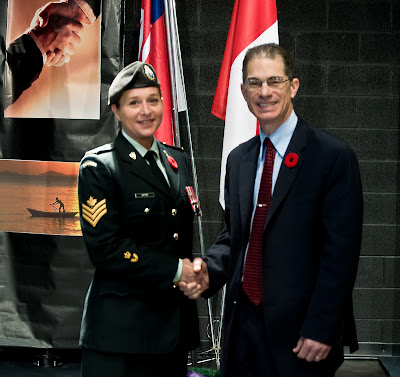On Wednesday, November 21, a dozen or so principals in my Family of Schools, along with central staff and myself, gathered for a morning of inquiry learning. As a group, we tackled three questions:
1. What constitutes effective inquiry learning?,
2. What constitutes effective monitoring of school improvement for student
achievement?,
3. Do the goals set in your school improvement plan effectively address the
instructional core?
Here are the answers the group came up with to the first two question:
What constitutes
effective inquiry?
Relevant Manageable Focused Collaborative Authentic*
Honest
Grounded in curriculum
Evidence-based
Cyclical
Engaging
What constitutes effective Monitoring?
Shared documents
Learning walks
Intentional dialogue
Data Collection
Documentation that makes student thinking visible
Evidence of student work
Student conferencing
Walking the halls
Modeling best practices
Learning stance vs. performance stance
Moderating the student experience
Shared documents
Learning walks
Intentional dialogue
Data Collection
Documentation that makes student thinking visible
Evidence of student work
Student conferencing
Walking the halls
Modeling best practices
Learning stance vs. performance stance
Moderating the student experience
During our session, we viewed the following YouTube video that further elaborates on inquiry-based learning: Inquiry-based Learning
We also watched this humorous video, which shows administrators how not to monitor teacher practice: How Not to Monitor
For homework, the principals were asked to restate, using the elements of the instructional core (teacher, student, curriculum, & task), one of the if/then goal statements in their school improvement plan for student achievement. .
Book Reiview: Inquiry: A
Districtwide Approach to
Staff and Student Learning
Staff and Student Learning
by Nancy Fichman Dana, Carol Thomas, & Sylvia Boynton
Inquiry:
A Districtwide Approach to Staff and Student Learning is
based on the premise that It takes a
district to teach a child and has as its thesis that a culture of authentic
inquiry will develop in a school or district only when all stakeholders are
immersed in it – including district leaders, principals, teachers, teacher
coaches, and students.
The authors begin by describing the process of inquiry
learning. It begins with a “wondering”
or “burning question”. Next comes the
collection of both quantitative and qualitative data, including field notes,
critical friends group feedback, professional reading, and most importantly,
student work. The data is then analyzed
and improvements in teaching practice are implemented based on what was learned. The rich learning from the inquiry process
is then shared with others through a variety of means, such as websites and
blogs and learning fairs. The learning fair is also a celebration of the
completed inquiry. The professional
learning community is the means through which the inquiry process occurs for
teachers and principals.
Three different types of inquiry are presented in this
book: shared, parallel, and intersecting.
In shared inquiry, the
principal, teacher, or student group conducts a single inquiry or
wondering. Parallel inquiry occurs when members of the learning community
conduct individual inquiry projects but work collectively as sounding boards
for each other within the learning community.
Finally, when each learner within a group explores a sub-question
related to an overarching topic, intersecting
inquiry is occurring.
The significant benefits of inquiry learning for all
stakeholder groups are clearly identified in Inquiry: A Districtwide Approach
to Staff and Student Learning.
Inquiry learning breaks down the walls separating teachers from
administrators and from each other. When
it occurs in classrooms, it also redefines the relationship between the teacher
and his/her students, making them co-learners.
In essence, inquiry learning gives the learning community shared
purpose. Another identified benefit of
inquiry learning, whether in PLCs among teachers or in the classroom with
students, is that it introduces meaningful data analysis into the learning
process. As well, it produces a much deeper and richer form of communication
among teachers and administrators and among the teacher and his/her
students.
However, the authors offer an important caution
concerning communication: Only when clear protocols are used to structure the
dialogue will the conversion be focused and “learningful”. They
recommend, as an important first-step protocol, that ground rules such as the
following are set for the learning group:
- Speak
honestly
- Assume
the goodwill of others
- Treat
others as equals and focus on equity of participation
- Trust
the process
- Expect
it to get messy and confusing at times
In terms of challenges to inquiry-oriented learning, the
authors are succinct – time and trust.
Both administrators and teachers need to solve the time crunch problem,
particularly if they are going to find a way to interact as a learning
community during the regular work day.
Then again, several creative solutions are proposed, such as creating
“partner classrooms” so that one teacher in a pairing is freed up while the
other watches both partners’ classes. As
for trust, teachers or principals who form a learning community must drop any
sense of competitiveness or protectiveness and enter into inquiry learning both
honestly and openly. With respect to the
classroom, teachers must trust both their knowledge of core curriculum and the
ability of their students to be self-directed in their learning as opposed to
teacher-directed.
One idea introduced in Inquiry: A Districtwide Approach
to Staff and Student Learning that I find particularly interesting is
the idea of offering experienced teachers the option of participating in an
inquiry-oriented learning community and sharing the results of their inquiry as
a substitute for being formally evaluated.
In the final
chapters of the book, the authors discuss the role of coaches in inquiry
learning. They offer the following
equation as their suggestion for the work of coaches: Pressure + Support = Educator Learning and Change. I have no issue with this formula, but
would humbly suggest a third addend in the equation – inspiration, which, I believe, is a necessary ingredient in
motivating teachers to change practices.
Overall, Inquiry: A Districtwide Approach to Staff
and Student Learning is an easy-to-read guide to inquiry-based
learning, which includes practical advice and strategies along with good case
studies. It approaches inquiry learning
from the perspective of all the major stakeholders, with the exception of one,
begging the question:
How could parents support
inquiry-based learning in the classroom?



















